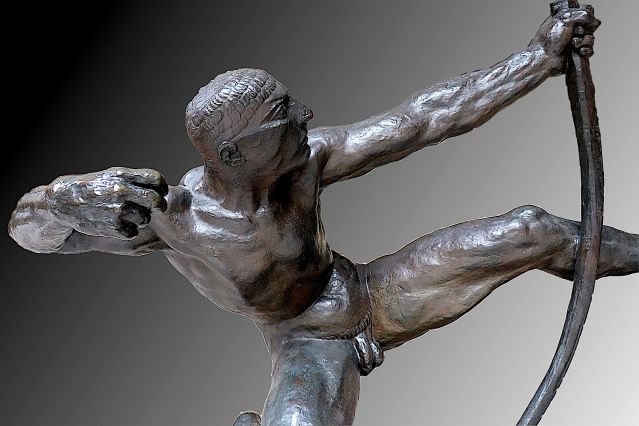Anxiety
The Metaphor of the Stoic Archer, Explained
What we can learn from Stoicism's most striking image.
Updated June 26, 2024 Reviewed by Jessica Schrader
Key points
- The metaphor of the archer encapsulates the essence of Stoic action.
- An archer can shoot accurately and still miss the target. But this is no reflection on the archer.
- We should think only about our actions. If we worry about their outcomes, we will be unhappy on false grounds.

The metaphor of the archer features in Cicero’s On the Ends of Good and Evil, a Socratic dialogue dedicated to Brutus, murderer of Caesar, in which Cicero, through a number of mouthpieces, expounds and critiques the central tenets of the three main philosophies of his day: Stoicism, Epicureanism, and a version of Platonism.
Cicero puts the metaphor of the Stoic archer in the mouth of his contemporary and ally, the Stoic statesman Cato the Younger (although it is, in fact, older than both of these men):
Take the case of one whose task it is to shoot a spear or arrow straight at some target. One’s ultimate aim is to do all in one’s power to shoot straight, and the same applies with our ultimate goal. In this kind of example, it is to shoot straight that one must do all one can; none the less, it is to do all one can to accomplish the task that is really the ultimate aim. It is just the same with what we call the supreme good in life. To actually hit the target is, as we say, to be selected but not sought. (On Ends, III, 22)
Elucidation
The metaphor encapsulates the essence of Stoic action. The archer does everything he can to shoot accurately: his bow is well strung, his arrows are carefully calibrated, and he has taken full account of the prevailing wind and other variables.
Even so, the arrow may not hit the bullseye, or even the target. As soon as it leaves him, the arrow, and with it the success of his action, is no longer within the control of the archer, but subject to outside forces such as a sudden change in wind speed or direction.
Similarly, having decided upon the optimal course of action, the good Stoic carries it out to the best of her ability. But whether the enterprise is ultimately successful is subject to unpredictable and uncontrollable external factors (or "externals," as the Stoics called them). Thus, the good Stoic bases her self-worth and happiness not on the success of her actions, but on their correctness.
In the words of Seneca:
The wise person considers intention, rather than outcome, in every situation. The beginnings are in our power; the results are judged by fortune, to which I grant no jurisdiction over myself… Death at the hands of a robber is not a condemnation. (Letters to Lucilius, 14).
This is not quite saying that we must do the right thing, but that the right thing is the most that we can do—and is therefore all we need concern ourselves with.
In conclusion
Chance, says Seneca, has a great deal of power in our lives, “necessarily so, since it is by chance that we are alive.” When it comes to things over which we do not have complete control, we play our part, we do our best, like the Stoic archer, but we do not fret over the outcome—which, if we have done our best, is no reflection on us.
Thus, we seek to be loveable, not to be loved, because the one is within our control whereas the other is not. Or, we seek to write well, not to become a bestselling author, because the one is within our control whereas the other is not.
So long as we focus on the things that are within our control, we will be calm and happy. But if we start concerning ourselves with things that are outside our control, we will become anxious and angry and miserable, and all on false grounds.
Neel Burton is author of Stoic Stories, which features an archer on the cover.


